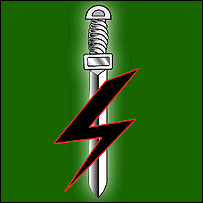The Left and the Jihad
Fred Halliday 8 - 9 - 2006
The left was once the principal enemy of radical Islamism. So how did old enemies become new friends? Fred Halliday reports.
The approaching fifth anniversary of the 9/11 attacks on the United States highlights an issue much in evidence in the world today, but one that receives too little historically-informed and critical analysis: the relationship between militant Islamic groups and the left.
It is evident that the attacks, and others before and since on US and allied forces around the world, have won the Islamist groups responsible considerable sympathy far beyond the Muslim world, including among those vehemently opposed from a variety of ideological perspectives to the principal manifestations of its power. It is striking, however, that - beyond such often visceral reactions – there are signs of a far more developed and politically articulated accommodation in many parts of the world between Islamism as a political force and many groups of the left.
The latter show every indication of appearing to see some combination of al-Qaida, the Muslim Brotherhood, Hizbollah, Hamas, and (not least) Iranian president, Mahmoud Ahmadinejad as exemplifying a new form of international anti-imperialism that matches – even completes – their own historic project. This putative combined movement may be in the eyes of such leftist groups and intellectual trends hampered by “false consciousness”, but this does not compromise the impulse to “objectively” support or at least indulge them.
The trend is unmistakable. Thus the Venezuelan leader Hugo Chávez flies to Tehran to embrace the Iranian president. London’s mayor Ken Livingstone, and the vocal Respect party member of the British parliament George Galloway, welcome the visit to the city of the Egyptian cleric (and Muslim Brotherhood figurehead) Yusuf al-Qaradawi. Many in the sectarian leftist factions (and beyond) who marched against the impending Iraq war showed no qualms about their alignment with radical Muslim organisations, one that has since spiralled from a tactical cooperation to something far more elaborated. It is fascinating to see in the publications of leftist groups and commentators, for example, how history is being rewritten and the language of political argument adjusted to (as it were) accommodate this new accommodation.
The most recent manifestation of this trend arrived during the Lebanon war of July-August 2006. The Basque country militant I witnessed who waved a yellow Hizbollah flag at the head of a protest march is only the tip of a much broader phenomenon. The London demonstrators against the war saw the flourishing of many banners announcing “we are all Hizbollah now”, and the coverage of the movement in the leftwing press was notable for its uncritical tone.
All of this is – at least to those with historical awareness, sceptical political intelligence, or merely a long memory - disturbing. This is because its effect is to reinforce one of the most pernicious and inaccurate of all political claims, and one made not by the left but by the imperialist right. It is also one that underlies the US-declared “war on terror” and the policies that have resulted from 9/11: namely, that Islamism is a movement aimed against “the west”.
This claim is a classic example of how a half-truth can be more dangerous than an outright lie. For while it is true that Islamism in its diverse political and violent guises is indeed opposed to the US, to remain there omits a deeper, crucial point: that, long before the Muslim Brotherhood, the jihadis and other Islamic militants were attacking “imperialism”, they were attacking and killing the left - and acting across Asia and Africa as the accomplices of the west.
A tortured history
The modern relationship of the left to militant Islamism dates to the immediate aftermath of the Bolshevik revolution. At that time, the Soviet leadership was promoting an “anti-imperialist” movement in Asia against the British, French and Dutch colonial empires, and did indeed see militant Muslims as at least tactical allies. For example, at the second congress of the Comintern in 1920, the Soviets showed great interest towards the Islamist group led by Tan Malaka in Indonesia; following the meeting, many delegates decamped to the Azeri capital of Baku for a “Congress of the Peoples of the East”. This event, held in an ornate opera house, became famous for its fiery appeals to the oppressed masses of Asia and included calls by Bolshevik leaders, many of them either Armenian or Jewish, for a jihad against the British.
A silent-film clip recently discovered by the Iranian historian Touraj Atabaki shows the speakers excitedly appealing to the audience who then proceed to leap up and fire their guns into the air, forcing the speakers on the platform to run for cover. One of those who attended the Baku conference was the American writer John Reed, author of the classic account of the Bolshevik revolution Ten Days That Shook the World. (On his return journey from Azerbaijan he was to die after catching typhoid from a melon he bought on the way.)
For decades afterwards, the Soviet position on Islam was that it was, if not inherently progressive, then at least capable of socialist interpretation. On visits in the 1980s to the then two communist Muslim states - the now equally-forgotten “Democratic Republic of Afghanistan” and the “People’s Democratic Republic of Yemen” - I was able to study the way in which secondary school textbooks, taught by lay teachers not clerics, treated Islam as a form of early socialism.
A verse in the Qur’an stating that “water, grass and fire are common among the people” was interpreted as an early, nomadic, form of collective means of production; while Muslim concepts of ijma’ (consensus), zakat (charitable donation), and ‘adala (justice) were interpreted in line with the dictates of the “non-capitalist” road. Jihad was obviously a form of anti-imperialist struggle. A similar alignment of Islamic tradition and modern state socialism operated in the six Muslim republics of the Soviet Union.
Such forms of affinity were in the latter part of the 20th century succeeded by a far clearer alignment of Islamist groups: against communism, socialism, liberalism and all that they stood for, not least with regard to the rights of women. In essence, Islamism - the organised political trend, owing its modern origin to the founding of the Muslim Brotherhood in Egypt in 1928, that seeks to solve modern political problems by reference to Muslim texts - saw socialism in all its forms as another head of the western secular hydra; it had to be fought all the more bitterly because it had such a following in the Arab world, in Iran and in other Muslim countries.
In a similar way to other opponents of the left (notably the European fascist movements), Islamists learned and borrowed much from their secular rivals: styles of anti-imperialist rhetoric, systems of social reform, the organisation of the centralised party (a striking example of which is Hizbollah in Lebanon, a Shi’a copy in nationalist, organisational and military form of the Vietnamese Communist Party). This process has continued in the modern critique of globalisation and “cultural imperialism”.
The ferocious denunciations of “liberalism” by Ayatollah Khomeini and his followers are a straight crib from the Stalinist handbook. Osama bin Laden’s messages, albeit clad in Qur’anic and Arabic poetic garb, contain a straightforward, contemporary, radical political messages: our lands are occupied by imperialism, our rulers betray our interests, the west is robbing our resources, we are the victim of double standards.
The hostility of Islamism to leftwing movements, and the use of Islamists in the cold war to fight communism and the left, deserve careful study. A precedent was the Spanish civil war, when Francisco Franco recruited tens of thousands of Moroccan mercenaries to fight the Spanish republic, on the grounds that Catholicism and Islam had a shared enemy in communism. After 1945, this tendency became more widespread. In Egypt, up to the revolution of 1952, the communist and Islamist movements were in often violent conflict. In the 1960s, Saudi Arabia’s desire to oppose Nasser’s Egypt and Soviet influence in the middle east led it to promote the World Islamic League as an anti-socialist alliance, funded by Riyadh and backed by Washington. King Feisal of Saudi Arabia was often quoted as seeing communism as part of a global Jewish conspiracy and calling on his followers to oppose it. In Morocco, the leader of the socialist party, Oman bin Jalloun, was assassinated in 1975 by an Islamist militant.
A canvas of conflict
There are further striking cases of this backing of Islamism against the left: Turkey, Israel/Palestine, Egypt, and Algeria among them.
In Turkey in the 1970s, an unstable government beset by challenges from armed leftwing groups encouraged both the forces of the nationalist right (the “Grey Wolves”) and Islamists, and indulged the assassination of leftwing intellectuals. In Palestine, the Israeli authorities, concerned to counter the influence of al-Fatah in the West Bank in the late 1970s, granted permission for educational, charitable and other organisations (linked in large part to the Muslim Brotherhood) in ways that helped nurtured the emergence of Hamas in 1987; Israeli thus did not create Hamas, but it did facilitate its early growth. In Algeria too, factions within the ruling national-liberation movement (FLN) were in league with the underground Islamist group, the National Salvation Front; its French initials, FIS, gave rise to the observation that the FIS are le fils (“the son”) of the FLN.
In Egypt, from the death of Nasser in 1970 onwards, the regimes of Anwar Sadat and Hosni Mubarak actively encouraged the Islamisation of society, in part against armed Islamist groups, but also to counter the influence of the socialist left. This was a project in which many formerly secular Egyptian intellectuals colluded, in an often theatrical embrace of Islam, tradition and cultural nationalism.
The trend culminated in the 1990s with a campaign to silence left and independent liberal voices: the writer Farag Fouda, who had called for the modernisation of Islam, was assassinated in 1992; Naguib Mahfouz, the Nobel prize-winning author, was stabbed and nearly killed in 1994 (allegedly for his open and flexible attitude to religion in his Cairo novels); the writer and philosopher Nasser Abu Zeid, who had dared to apply to the Qur’an and other classical Islamic texts the techniques of historical and literary criticism practised elsewhere in the world, was sent death-threats before being driven into exile in 1995.
There were even worse confrontations between Islamism and those of a socialist and secular liberal persuasion. The National Islamic Front in Sudan, a conspiratorial group that explicitly modelled itself on Leninist forms of organisation, took power in 1989 and proceeded to arrest, torture and kill members of the communist party, all this at a time when playing host to Osama bin Laden in Khartoum.
In Yemen, after the partial unification of the military north and socialist south in May 1990, the regime allowed assassins of the Islamist movement to kill dozens of socialist party members and army officers. This process precipitated the civil war of 1994, in which armed Islamist factions linked by ideology and political ties to bin Laden (most prominently the Abyan army) fought side-by-side with the regular army of the north to crush the socialist south. This was an echo of the war in Dhofar province in the neighbouring Arabian state of Oman during 1970s, when anti-communist government published propaganda by the British-officered intelligence corps denouncing the leftwing rebels for allowing men to have only one wife, and promised them four if they came over to the government side.
The politics of blood
The historical cycle of enmity reached an even greater pitch in two other countries where the anti-communist and rightwing orientation of the Islamists became clear. The first, little noticed in the context of Islamism, was the crushing of the left in Indonesia in 1965. There the independent and “anti-imperialist” regime of President Sukarno was supported by the communist party (PKI), the largest in non-communist Asia.
After a conflict within the military itself, a rightwing coup backed by the United States seized power and proceeded to crush the left. In rural Java especially, the new power was enthusiastically supported by Islamists, led by the Nahdat ul-Islam grouping. A convergence between the anti-communism of the military and the Islamists was one of the factors in the rampant orgy of killing which took the lives of up to a million people. The impact of this event was enormous, both for Indonesia itself and the balance of forces in southeast Asia at a time when the struggle in Vietnam was about to escalate.
The second country, Afghanistan, also had an outcome of great significance for the cold war as a whole. During the Soviet occupation of the 1980s, the most fanatical Islamist groups - funded by the CIA, Pakistan and the Saudis to overthrow the communist government in Kabul - were killing women teachers, bombing schools and forcing women back into the home in the areas they controlled.
Such enemies led the first leader of communist Afghanistan, Nur Mohammad Taraki, to refer to the opposition as ikhwan i shayatin (“the satanic brotherhood”, a play on “Muslim Brotherhood”). Bin Laden himself, in both his 1980s and post-1996 periods in Afghanistan, played a particularly active role not just in fighting Afghan communists, but also in killing Shi’a, who were, in the sectarian worldview of Saudi fundamentalism, seen as akin to communists. The consequences of this policy for the Arab and Muslim worlds, and for the world as a whole, were evident from the early 1990s onwards. It took the events of the clear morning of 11 September 2001 for them to penetrate into the global consciousness.The true and the false
This melancholy history must be supplemented by attention to what is actually happening in countries, or parts of countries, where Islamists are influential and gaining ground. The reactionary (the word is used advisedly) nature of much of their programme on women, free speech, the rights of gays and other minorities is evident.
There is also a mindset of anti-Jewish prejudice that is riven with racism and religious obscurantism. Only a few in the west noted what many in the Islamic world will have at once understood, that one of the most destructive missiles fired by Hizbollah into Israel bore the name “Khaibar” - not a benign reference to the pass between Afghanistan and Pakistan, but the name of a victorious battle fought against the Jews by the Prophet Mohammad in the 7th century. Here it is worth recalling the saying of the German socialist leader Bebel, that anti-semitism is “the socialism of fools”. How many on the left are tolerant if not actively complicit in this foolery today is a painful question to ask.
The habit of categorising radical Islamist groups and their ideology as “fascist” is unnecessary as well as careless, since the many differences with that European model make the comparison redundant. It does not need slogans to understand that the Islamist programme, ideology and record are diametrically opposed to the left – that is, the left that has existed on the principles founded on and descended from classical socialism, the Enlightenment, the values of the revolutions of 1798 and 1848, and generations of experience. The modern embodiments of this left have no need of the “false consciousness” that drives so many so-called leftists into the arms of jihadis.


















